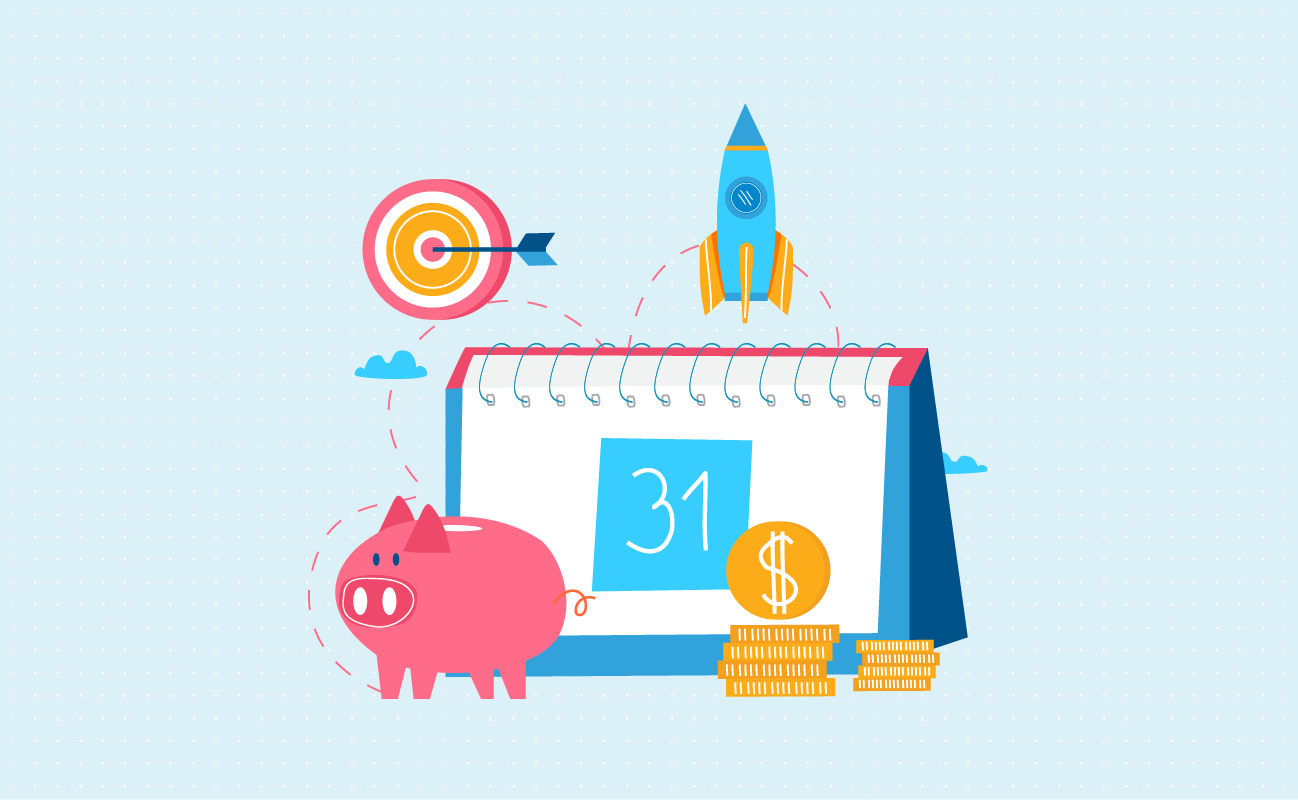Fixed Rates
30 yr
25 yr
20 yr
15 yr
10 yr
Compare Terms
Compare Rates
Real APR
Adjustable Rates
Qualification
Affordability
Renter Affordability
Rent vs Buy
Price per Square Foot
Jumbo
Home Sellers
 Remaining Mortgage Balance Calculator
Remaining Mortgage Balance CalculatorAre you unsure of what your current mortgage balance is or what it will be after a set number of payments? Use this calculator to quickly calculate the current or a future balance at a specific number of time. Enter your loan interest rate, term, and the amount borrowed and we will automatically calculate the principal and interest portion of the loan. If you made different P&I payments you can overwrite the default payment associated with your loan's amortization schedule.
After completing the top portion of the calculator enter any of the following 3 to calculate the loan's balance: payments made, payments remaining, or the month and date of the first payment you made. Once you fill out any of these 3 options we will automatically calculatoe the current loan balance.
Authored by Jose Abuyuan on July 27, 2020

So you want to pay down your mortgage. This is often your last major debt obstacle. Pay it down and you’re home free. Mortgages are a major financial decision with its own pros and cons. On one hand, you could save money on interest and improve cash flow. It’s a secure investment with nary a risk involved. On the other hand, you lose a key tax deduction and hedge against inflation.
Think of your mortgage as a video game boss. Fighting the bad guy without some sort of health bar to guide you can be a frightening experience. You don’t know what you’re getting into. You don’t know how effective your attacks are. And you don’t know how long the battle will last. Thus is the consequence of flying blind.
With that health bar on top, the boss fight becomes easier. You know what combos can bring down the baddie the fastest. You know what to bring to the fight. And if you’re still underequipped, you’ll at least know that it’s going to take awhile. The same can be said for paying down a mortgage.
Once you’ve decided, you’ll need a clear plan of attack. Killing or wounding your mortgage takes more than just paying early and often. You must know how much of your mortgage remains. Knowledge plays a key role in planning your debt repayment strategy. This not only gives you a reminder of your progress to keep you motivated. It also provides you with clearer time tables to work with.
Your remaining balance can help you find out what strategy works the fastest. With the right tools on hand, you can also figure out how much you can save once you start paying extra. Fortunately, knowing how much of your mortgage balance is left isn’t too difficult.
Contacting your lender is the first route you can take. Ask them for a full report on your balance. It’s as easy as making a phone call. You can also check out the state of your mortgage balance online through your lender’s website.
You’ll have an easier time calculating a fixed-rate mortgage. Assuming you didn’t miss any payment, you can also use math to determine where your balance is at present. Using our calculator above, you can estimate how many payments you’ve made since you received your loan.

Your repayment strategy will depend on the type of mortgage you signed up for. This is certainly one of the few things you should know from the start. Most people sign up for fixed-rate mortgages because they’re predictable. You get the same monthly payment year after year. If you chose this, congratulations. You’ve made your accelerated repayment strategy much easier.
If you picked a variable-rate mortgage, you knew what you would be getting into. This makes it harder to calculate your remaining balance outright, of course. But it does have its advantages. In good times, you monthly payments can be lower than fixed-rate ones. This may not last for long, though. You should put locking in your rates as a high priority. Time it right, and you can secure an even better interest rate.

The above calculator does not include the cost of property taxes or homeowner's insurance. These can vary widely across state and county lines. Deduct these escrow charges from your core principal and interest calculations when calculating the impact of making extra payments.
Your mortgage’s payment duration also matters. Most people get 30-year terms. This option guarantees them the lowest possible payments per month. It does come with a big caveat: since you’re paying a mortgage for much longer, you pay more in interest.
Let’s use our mortgage calculator to compare these values. Assuming you bought a house worth $230,000, this scenario assumes the following details:
Loan Amount: $184,000.00
Down Payment: $46,000.00
Closing Costs: $3,140.00

Because it can vary from state to state, we did not add the cost of taxes and insurance in our first example. These are added as escrow costs in your mortgage payments. Always deduct the costs of these escrow charges when making extra payments.
In this example, our 30-year mortgage comes with a 3.5 percent annual percentage rate (APR). Our 15-year mortgage, meanwhile, comes with a 2.4 percent APR. All these being equal, let’s look at how much you can save by picking a shorter term.
| 30-Year Mortgage (3.5% APR) | 15-Year Mortgage (2.4% APR) | |
|---|---|---|
| Monthly Principal + Interest | $826.24 | $1,218.25 |
| Total Interest Paid | $113,447.20 | $35,284.89 |
| Total Financing Expenses | $116,587.20 | $38,424.89 |
| Total Cost | $346,587.20 | $264,424.89 |
The 30-year mortgage requires you to pay an extra $113,447.20 over the lifetime of your loan. These interest payments not only draw money away from your investments and budget. They have the potential to cut into your profits when your home grows in value. Assuming your home is now worth $350,000, you’ve only made $3,412.80!
The lower monthly payment is very attractive, however. If your budget is tight, you might concede to a lower monthly payment even if you have higher total costs. As your budget improves, you might stand to save more money by accelerating your payments.
The loan-to-value ratio can affect how much you’ll need to pay. The higher your down payment, the lower your mortgage amount and the lower your PMI rate will be. If you put down below 20 percent of your home’s value, you will typically require private mortgage insurance. You can typically have your insurance waived when your home’s equity reaches 20 percent. Lenders are required to automatically cancel PMI once your mortgage balance reaches 78 percent of the home’s value.
You can also avoid private mortgage insurance by taking out a piggy-back second mortgage. This will help bridge the costs between your mortgage and your home price if you have a lower down payment. Although it adds to your monthly payments, it costs you less than private mortgage insurance. Some homeowners put 10% down and take out a second mortgage for 10%. When combined they meet the threshold to not require PMI.
There are four major ways you can pay down your mortgage faster.

Biweekly payments divide the total annual payments by 26. This represents the amount that you would pay every two weeks. On the surface, this seems like a semi-monthly payment, but with a key difference. Although we often think of months as 4-week periods, this is not always the case. There are 52 weeks in a year, a number not divisible by 12.
On the other hand, that number is divisible by 13. Thus, paying every two weeks nets another month’s worth of payments. This extra payment can help reduce your principal fast. There are three ways you can make biweekly payments:
The first two often come with set-up and maintenance fees. This can become a costly way to pay down your mortgage. Moreover, your payments may come at you fast. You’d better be prepared to pay three times in some months. Thus, we recommend the last option. It costs you nothing and it wouldn’t be as confusing to keep track.
Check out our guide on our biweekly payment calculator to learn more about this method.
With biweekly payments, you add an extra month’s worth of payments to your mortgage. But why stop there? Adding a larger extra sum each month can help you pay down your mortgage much faster. This is the same principle applied to accelerated debt repayment. Indeed, you can start paying down your mortgage when you clear your other debts. You can now use that free money for extra mortgage payments.
Extra payments outperform biweekly payments when they exceed 1/12th of your monthly payments. The larger your contribution, the more of your mortgage is paid off. Biweekly and extra payments work better together. In essence, you pay an extra amount each month for 13 months!
A word of warning, though. You might need that money elsewhere. Think twice before committing to a permanent increase in your mortgage payments. Take steps to make sure your budget can take it.
Want to learn more about extra payments? Check out our guides on our accelerated repayment and extra payment calculators.
But what if you can’t afford to make a permanent payment increase to your mortgage? Well, who said it had to be permanent? Windfall cash from a variety of sources can be used as extra mortgage payments. Some of these could be minuscule one-time contributions, such as an extra $20 you found in your couch or laundry.
Other lump sum payouts can be much larger. Did you win a large jackpot in your last trip to Vegas? Did you join a game show and come home with a cash prize? Did you bluff (or blunder) your way into winning a round of poker?
Put some or all of that money to your mortgage. It’s money well spent.
You can make these contributions more “regular” by swapping gifts in kind for cash. Ask your friends and family to give you cash gifts on special occasions. This would, in fact, be more useful than getting stuff you don’t need cluttering your house.

Here’s how you can add lump sum payments in our calculators. If you make a large lump sum payment, find out its approximate worth in monthly payments. Add this number to the payments you’ve made. Alternatively, you can calculate the remaining loan balance before the lump sum payment was made using an amortization schedule then adjust the loan term to start after the lump sum payment is made with the lump sum amount subtracted from the balance.
You can compound your interest savings by using the above strategies in conjunction. Make accelerated biweekly payments with extra added to each payment while making additional lump sum payments when holiday bonuses or tax refunds come in.
If interest rates have fallen dramatically since you purchased your home you may want to look at refinancing your loan.
Long story short, refinancing replaces your existing mortgage with a new one. This new mortgage would often have a lower rate than the last one you had.
Lenders are open to refinancing only when you meet the following criteria:
In times when interest rates drop, refinancing could be a very tempting option. And why shouldn’t it be? After all, you have the potential to save a lot of money if you slash your rates by a third or half of a percentage point. Well, it all depends on your current situation. There are times when the costs of refinancing far outweigh the savings. And if you’re not staying for long in your current home anyway, why bother?
Refinancing benefits the following types of borrowers:

Make sure that you will be able to cover your new monthly mortgage payment even if you experience income volatility. Most homeowners try to set aside at leat 3 to 6 months of monthly expenses to ensure they can continue to make payments if they lose their income temporarily.
You know it’ll be time to refinance if the prevailing rate is at least a percentage point lower than your current APR. Consider the closing costs of your new mortgage. It will take some time for your savings to recoup these costs. Be patient. Your savings will be more readily apparent with time.
Shop around before refinancing your loan. This doesn’t only net you a better selection of rates from other lenders. You can also receive a better deal and terms from your present lender.

Using the 30-year version of our first example, let’s see how much money we can save.
30-Year Mortgage
Loan Amount: $184,000.00
Down Payment: $46,000.00
Closing Costs: $3,140.00
Rate (APR): 3.5 %
Monthly Payment (inc. Escrow Costs): $1,370.00
Monthly Principal + Interest: $826.24
Our first step is to identify our remaining balance. To do this, count the number of months that passed since your first payment. For our example, you’ve been paying for 3 years and 8 months. That’s around 44 months of payments.
Add in any large lump sum payments. For instance, you won $4,000 from a game show. You used most of this to pay down your mortgage in a lump sum worth 4 months of principal and interest payments ($3,304.96). Because of this, you’ve paid the equivalent of 4 years:
| Payments Made So Far | 48 |
|---|---|
| Payments Remaining | 312 |
| Total | $169,103.77 |
Let’s assume you can add up to $100 to your monthly payments. Our next tables will look at the savings you make from the first two options (and both options combined):
| Current | Current + Extra ($100) | Biweekly | Biweekly + Extra | |
|---|---|---|---|---|
| Full Mortgage Payment | $1,370.00 | $1,470.00 | $664.09 | $714.09 |
| Mortgage Principal + Interest | $826.24 | $926.24 | $413.12 | $463.12 |
| Years to Pay Off | 26 | 21.8 | 22.9 | 19.3 |
| Interest Savings | 0 | $15,973.95 | $11,869.25 | $24,942.35 |
| Monthly Payments Eliminated | 0 | 50.0 | 36.9 | 79.8 |
| Total Payment Savings | 0 | $41,312.11 | $30,507.41 | $65,972.26 |
| Equity After 5 Years | $36,698.11 | $43,244.73 | $41,228.17 | $48,326.40 |
| Equity After 10 Years | $62,662.74 | $77,005.99 | $72,592.14 | $88,145.10 |
By combining biweekly payments with an extra $100, you would’ve paid off your mortgage in 19 years and 4 months. Thanks to that lump sum, you’ve only been paying for 3 years and 8 months. Your mortgage only lasted for 23 years.
Let’s see how much you would’ve been paying up until then:
| Current | Current + Extra | Biweekly + Extra | |
|---|---|---|---|
| Balance Due (19.3 Years) | $58,877.96 | $25,779.47 | $35,823.44 |
Now, if you saved that money in a savings account with 2 percent interest, how much would your money grow?
| Savings | Current | Current + Extra | Biweekly | Biweekly + Extra |
|---|---|---|---|---|
| Average Monthly Savings | 0 | $60.97 | $43.15 | $107.44 |
| Average Annual Savings | 0 | $731.63 | $517.79 | $1,289.27 |
| Equivalent Interest Rate | 3.50% | 2.54% | 2.67% | 2.25% |
| Investment Returns | 0 | $6,924.46 | $113.33 | $3,689.18 |
| Cash Available After 26 Years | 0 | $48,236.57 | $30,620.74 | $69,661.45 |
Let’s see how much money you can save by refinancing your mortgage. We’ll assume that your new mortgage has a term of 15 years and has a rate of 2 percent. Your closing costs amount to $4,582.08.
| Original (30 years, 3.5% APR) | Refinanced (15 years, 2% APR) | |
|---|---|---|
| Monthly Principal + Interest | $826.24 | $1,088.20 |
| Interest Due | $113,447.20 (*$88,684.60) | $26,771.70 |
| Interest Saved | 0 | $61,912.90 |
| Net Refinancing Savings | 0 | $57,330.82 |
*Interest due after 4 years of payments.
In our scenario, the best way to save money is through biweekly and extra payments combined. Refinancing provided the second best results and the shortest term. You can probably save even more if you made accelerated payments to your refinanced mortgage, but that might stretch your budget too far.

Critics of rapid mortgage payments argue that you might lose out on tax benefits. After all, mortgage payments are tax-advantaged. Pay too soon, too fast, and you lose out on a key tax deduction. You might even be bumped up another income bracket, which can cost you more in tax payments.
Besides interest savings, what else can you get from paying off your mortgage fast?
One of the reasons why anyone would want to buy a home is value preservation. A home is a secure investment. Outside of catastrophic events, the money you spent on your home would grow in value. Paying your mortgage puts your liquid cash into a stable (if illiquid) asset. And the more you pay today, the less you pay tomorrow.
You might get a similar (or better) returns from your savings account or investment portfolio, however. This will depend on the prevailing rates and the state of the market. You need to play the long game with investments. In good times, your portfolio might make more money than what you’re saving in mortgage payments. In bad ones, your money is more secure paying off debt. The markets might remain irrational longer than your risk tolerance.
One last benefit is peace of mind. As you grow old, you’d want your home secure for your family. Paying off your mortgage doesn’t only save you money. It also means more money for unexpected expenses, retirement savings, and gifts for your kids. Going to your golden years with fewer worries is worth every cent.
To secure your golden years upon retirement, it pays to plan ahead. Check out our guide on our retirement savings calculator.
Jose Abuyuan is a web content writer, fictionist, and digital artist hailing from Las Piñas City. He is a graduate of Communication and Media Studies at San Beda College Alabang, who took his internship in the weekly news magazine the Philippines Graphic. He has authored works professionally for over a decade.